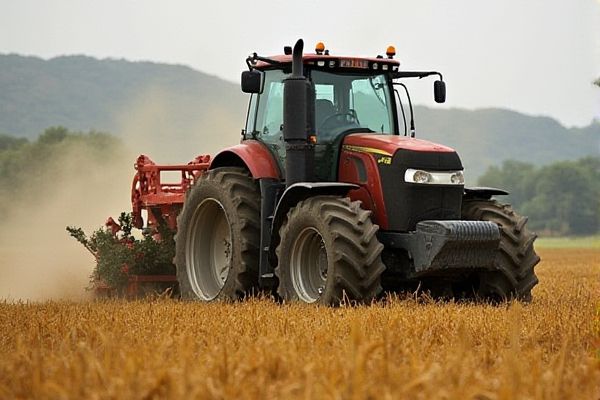
Kenya's agricultural sector offers numerous job opportunities in agricultural engineering, primarily due to the country's focus on improving food security and sustainability. Professionals in this field can engage in designing and implementing irrigation systems, enhancing agricultural machinery, and developing innovative farming technologies. Additionally, positions are available in research and development, as well as consultancy roles that aim to optimize agricultural practices. With Kenya's commitment to advancing its agricultural infrastructure, opportunities continue to grow, making it a fruitful area for career development.
Job Description
Agricultural engineering jobs in Kenya encompass a range of responsibilities, including the design and implementation of innovative agricultural machinery, irrigation systems, and sustainable farming practices. Professionals in this field work to improve crop yield and soil health while addressing challenges such as climate change and resource management. You may be involved in research, project management, or consulting to enhance agricultural productivity and efficiency. These roles often require collaboration with farmers, government agencies, and NGOs to develop solutions tailored to local needs and conditions.
Requirement
Agricultural engineering jobs in Kenya typically require a Bachelor's degree in agricultural engineering or a related field. Proficiency in design software and knowledge of sustainable farming practices are crucial skills that employers seek. You may also need to demonstrate experience in project management, as many roles involve overseeing the implementation of agricultural technologies. Certifications in irrigation or water resource management can enhance your qualifications and improve your job prospects in this growing sector.
Salary and Perks Expected
In Kenya, agricultural engineering jobs typically offer competitive salaries, which can range from Ksh 50,000 to Ksh 120,000 monthly, depending on experience and the specific role. Entry-level positions may start at the lower end, while experienced professionals or those in managerial roles can earn significantly more. Benefits often include health insurance, allowances for transport and housing, and opportunities for professional development. Engaging in sustainable practices and innovative agricultural technologies can enhance your career prospects in this growing sector.
Similar Job Names
- Agricultural Engineer
- Irrigation Engineer
- Soil and Water Conservation Engineer
- Farm Equipment Specialist
- Agricultural Technology Consultant
- Agricultural Research Scientist
- Agricultural Mechanization Specialist
- Crop Production Engineer
- Agricultural Systems Analyst
- Sustainable Agriculture Consultant
- Precision Agriculture Specialist
- Agricultural Product Development Engineer
- Food Processing Engineer
- Agricultural Project Manager
- Agricultural Environmental Consultant
Job Expectation Concept
Agricultural engineering jobs in Kenya entail designing and implementing technology solutions to enhance agricultural productivity and sustainability. Professionals in this field work on projects related to irrigation systems, machinery design, and resource management, ensuring that farming practices are efficient and environmentally friendly. You may engage with farmers and agricultural institutions to address challenges such as soil erosion, water scarcity, and crop yield improvement. The demand for skilled agricultural engineers continues to grow in Kenya, reflecting the country's commitment to advancing its agricultural sector and food security initiatives.
Career Advantage and Weakness
Agricultural engineering jobs in Kenya present a unique blend of career advantages and challenges. The growing emphasis on sustainable farming practices and technological innovation creates significant opportunities for professionals in this field. You can contribute to improving agricultural productivity, resource management, and environmental sustainability, which are vital for the country's development. However, the industry may also face limitations such as fluctuating market demands and the need for ongoing skills adaptation to keep pace with advancements in technology.
Important Thing Must Know
Agricultural engineering jobs in Kenya focus on enhancing agricultural efficiency through innovative technologies and practices. The sector offers various roles, including farm management, designing irrigation systems, and developing agricultural machinery. A strong background in engineering principles, biology, and environmental science is essential for success in this field. Networking with professionals and participating in internships can significantly improve your prospects in securing these positions. Many organizations, both local and international, are investing in sustainable agriculture in Kenya, creating diverse opportunities for qualified engineers.
Alternative Career Options
Kenya's agricultural engineering sector offers a range of alternative career options beyond traditional roles. Opportunities include soil and water conservation engineering, focusing on sustainable practices to enhance crop production. Private sector positions in agricultural technology firms provide avenues for developing innovative farming solutions. Engaging with governmental and non-governmental organizations specializing in food security can also lead to impactful career paths in research and policy development.
Companies List
- Kenya Agricultural and Livestock Research Organization (KALRO)
- East Africa Agribusiness Network
- Kenya Seed Company
- Syngenta Kenya
- Oserian Development Company
- Agri-ProFocus Kenya
- Kenya Agricultural Value Chain Enterprises (KAVES)
- Del Monte Kenya
- Mabati Rolling Mills
- International Centre of Insect Physiology and Ecology (ICIPE)
List of Ideal City
Nairobi, the capital city of Kenya, offers numerous opportunities in agricultural engineering, with its vibrant agro-tech startups and proximity to research institutions. Eldoret, known as the "food basket" of Kenya, focuses on enhancing agricultural productivity, making it a prime location for networking and skill development in this field. Nakuru, with its rich agricultural landscape and growing interest in sustainable farming practices, provides a supportive environment for agricultural engineers to thrive. Kisumu, located near Lake Victoria, presents unique opportunities in irrigation and aquaculture, catering to professionals aiming to innovate in the agricultural sector.
 jobs-kenya.com
jobs-kenya.com